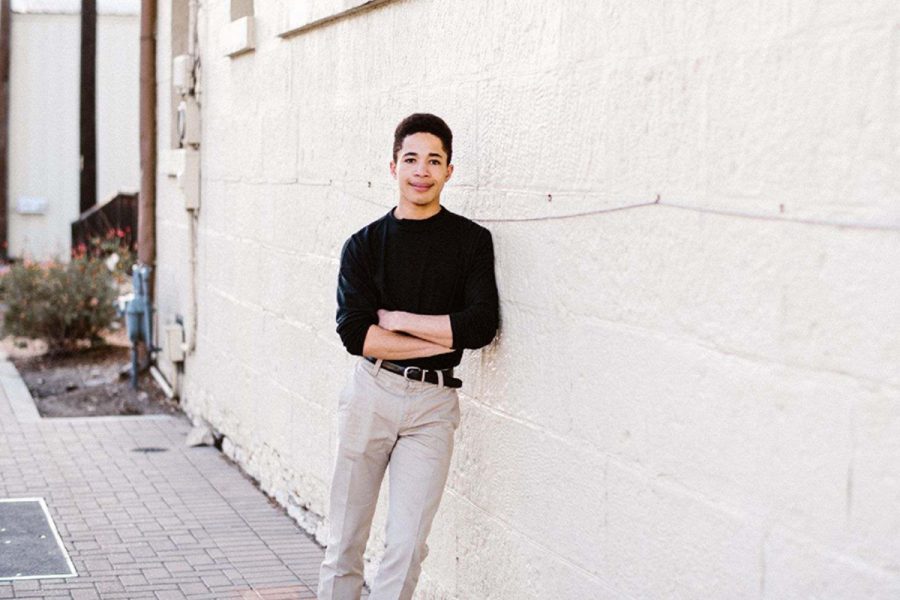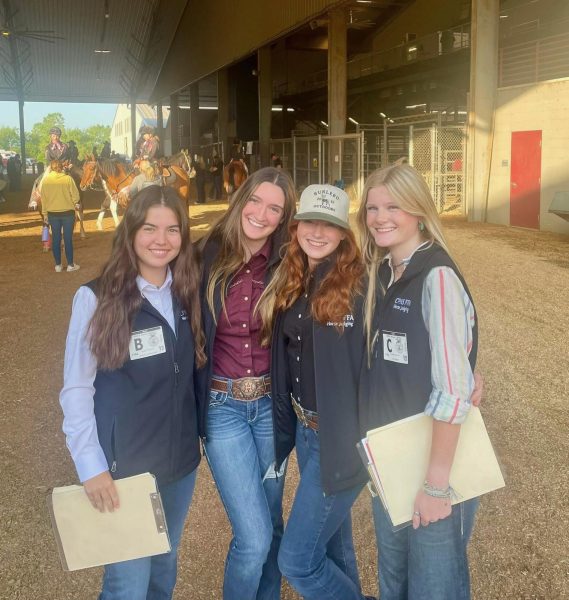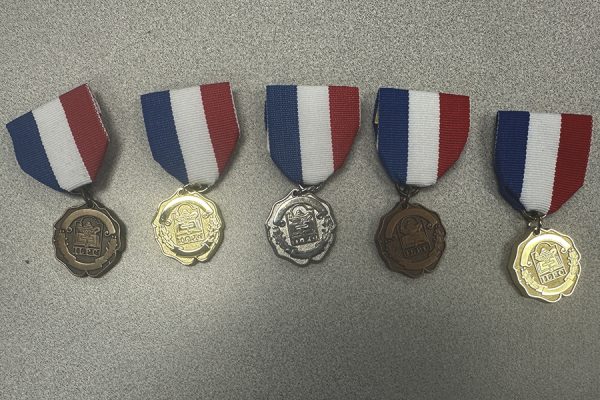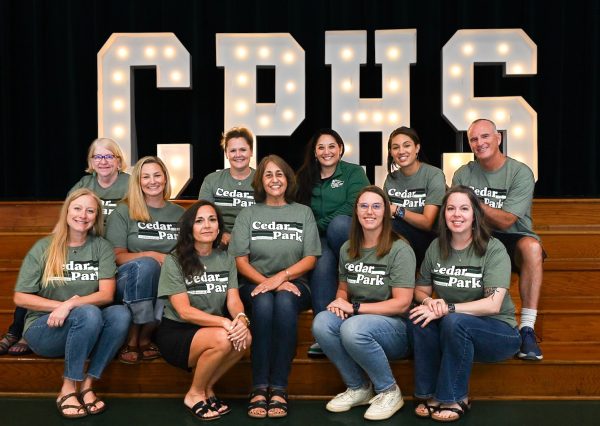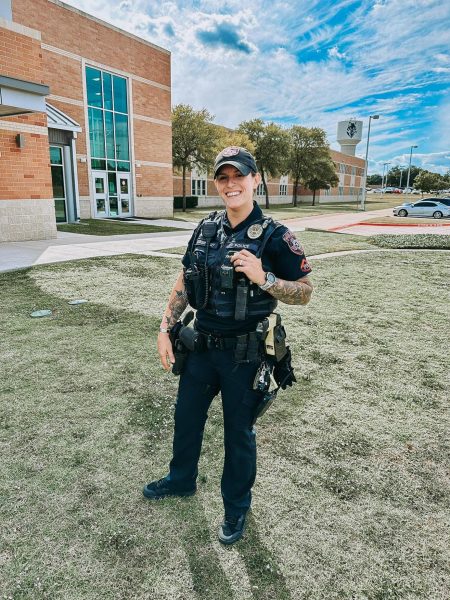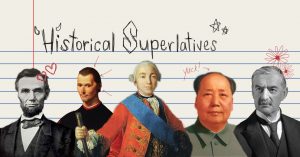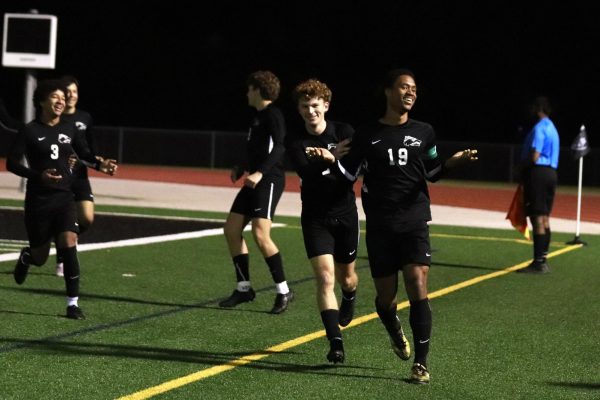Senior Spotlight: Greg Phea
May 17, 2018
He is a two-time international qualifier in DECA, the former class president of his freshman and junior class and the creator of the first African American Heritage Club at Cedar Park High School. Throughout the past four years, senior Greg Phea has built himself up to become a role model for his peers and brought himself closer towards his goal of making a social impact.
Phea realized that he was passionate about civil rights over his past few years of high school.
“I just kind of realized that almost every research-based project I have done in high school has been related to the criminal justice system,” Phea said.
There are many jobs that would coincide with his passion for justice and equality, but Phea decided that he wants to be a civil rights attorney.
“I like civil law [more than corporate law] because it allows me to present a better argument for an individual,” Phea said. “And I feel like the biggest micro-political impact would be winning a case for a person.”
While Phea is interested in fighting for any civil rights-related cases, he said that as an African American male, police brutality is an issue that he is eager to help tackle.
“[The law] assumes that whatever happened at the scene, the officer used their best reasoning,” Phea said. “Which is considerate, but it can be very dangerous having that put into assumption.”
After deciding that unity and bringing the minority communities together could help make a change, Phea created the first African American Heritage Club at Cedar Park.
“It started as controversial but my main reasoning behind it was to establish a safe place for African Americans [and other people of color] in Cedar Park,” Phea said. “I thought that the space needed to be created and more unison needed to be emphasized within the presence of our group.”
The club’s focus has been educating its members on current events and history, however Phea decided to take it a step up this year as their event coordinator.
“We can talk the talk and observe, but if we don’t take the information and apply it, then we kind of realized that we wouldn’t contribute to much,” Phea said.
Phea was able to join Six Square, an Austin organization that focuses on cultural preservation, in sending a crew of volunteers to a deteriorating Austin cemetery. Bethany Cemetery was the first African American cemetery in Austin, and the burial site of former slaves, Civil War veterans and early African American residents.
The cemetery was taken off Austin’s budget plan in 2010 when the city fell short of funding.
“Part of it was gentrification, a lot of people want these new houses in Austin and want to move into these new areas, but part of that comes with the removal of historic grounds,” Phea said. “So indirectly, people aren’t really recognizing some of the heritage that exists.”
To help restore the site, the club documented the grave information, cleaned up the gravestones and helped Six Square both take donations and spread awareness of the cemetery’s neglect. After all their hard work, Phea submitted this project to Princeton and received a Princeton Prize for Race Relations certificate.
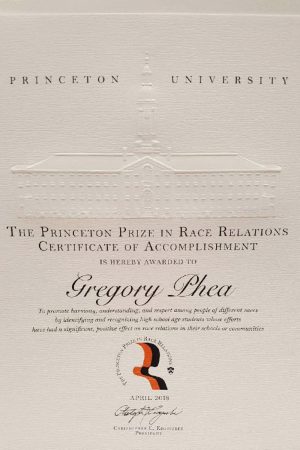
He said that this project was one of several that he submitted to Princeton. The other project talked about why the club marches annually on MLK Day and how Phea helped with an art studio that promotes local minority artists.
“The process is very competitive and extensive, and I was actually the first winner from Austin, which surprised the committee,” Phea said. “I [feel] an obligation to represent and advocate for those in disenfranchised conditions.”
Apart from working outwards in his community, Phea strives within his club to educate his peers on current issues.
“Education, I see, is the solution to every problem we are witnessing right now in the world,” Phea said. “It’s so important for kids to understand history, because even though [they] might not have access to diversity in their school, if at least they have the facts of history extensively presented, then they can form opinions for themselves and better understand.”
The African American Heritage Club meets in DEN on the first and third Thursday of every month in Joseph Maduneme’s room. Phea said that students don’t need to fit into a minority group in order to join the club’s melting pot.
“We have always had a presence outside of African Americans, we can’t say that it’s [an exclusive club],” Phea said.
He said that it is vital for all people, no matter their race, to understand the importance of fighting for equality.
“If you know the significance of certain African American figures and especially the issues that are going on now, and understand why people are unrestful because of them, that’s huge,” Phea said.
While Phea has been able to help unify his community and bring attention to issues, he said that he often feels unable to make a larger impact.
“I get overwhelmed every day because I feel like I can’t make a macro-political impact,” Phea said. “It’s very scary because in the world there is so much corruption and I often feel helpless as a kid.”
Phea goes to Mr. Maduneme when he lacks confidence, who tells him that if he keeps believing that he can be that change in the system, then he can be. Former student, Lexxi Clinton, also had a big influence on Phea.
“My main role model was Lexxi Clinton,” Phea said. “Her advocacy and interest in social subjects when I was a sophomore really inspired me to think about what interested me and what I wanted to be as an African American.”
Throughout high school, Phea said that he worked towards having the unapologetic nature that Clinton had.
“I always sort of wanted to be a civil rights attorney, but she showed me that you can ask these questions in high school,” Phea said.
Phea said that he sometimes lost friends from being the bold person who would point it out when a classmate said something problematic, but he learned to deal with it.
“Being in an environment that sometimes is suppressive to your individuality really helped my individuality become more evident,” Phea said. “In senior year, I became unapologetically myself.”
He said that discovering his true self was one of his biggest accomplishments in high school.
“It’s rough, but finding yourself is so worth the sacrifice,” Phea said. “Because then you really are able to go throughout life as you are.”
Phea will be dual majoring in international relations and political communication at UT Austin.
He said he will not let college stop him from continually trying to make the impact that he wants to see.
“I want to tear a rip so big, that no one will ever have to feel bad about being themselves,” Phea said.

![Posing with their UIL State Trophy, the Robolobos Van Halen Team beams with excitement after their win. “It was a team effort,” junior Noah Vo said. “I was happy because something happened in the first match and the match was also really close. So [when] they finally revealed it, I was pretty happy.” Photo courtesy of Amy Lovelace](https://cphswolfpack.com/wp-content/uploads/2025/05/IMG_0910-EDIT-1200x723.jpg)
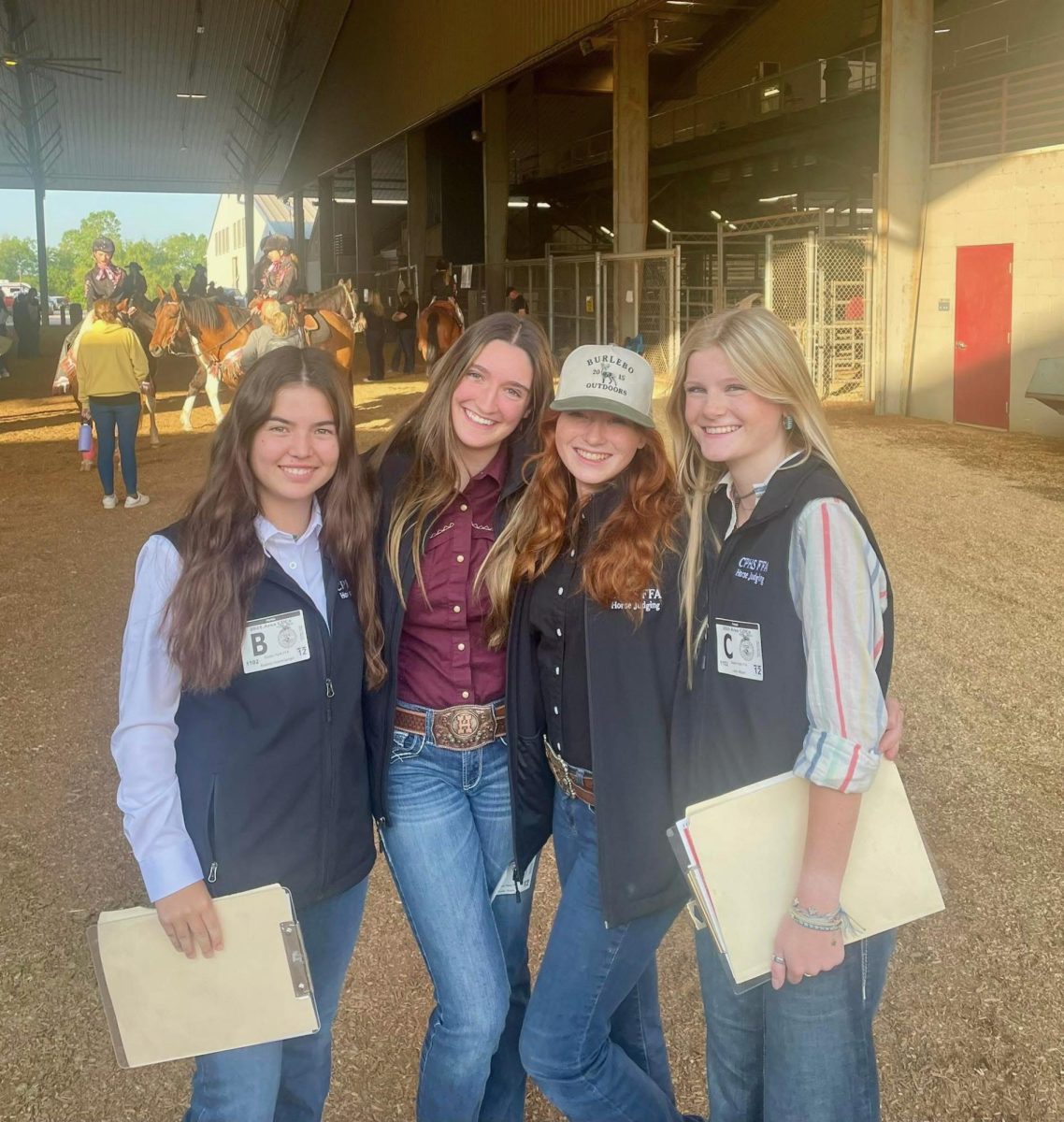
![Broadcast, yearbook and newspaper combined for 66 Interscholastic League Press Conference awards this year. Yearbook won 43, newspaper won 14 and broadcast took home nine. “I think [the ILPC awards] are a great way to give the kids some acknowledgement for all of their hard work,” newspaper and yearbook adviser Paige Hert said. “They typically spend the year covering everyone else’s big moments, so it’s really cool for them to be celebrated so many times and in so many different ways.”](https://cphswolfpack.com/wp-content/uploads/2025/05/edited-ILPC.jpg)











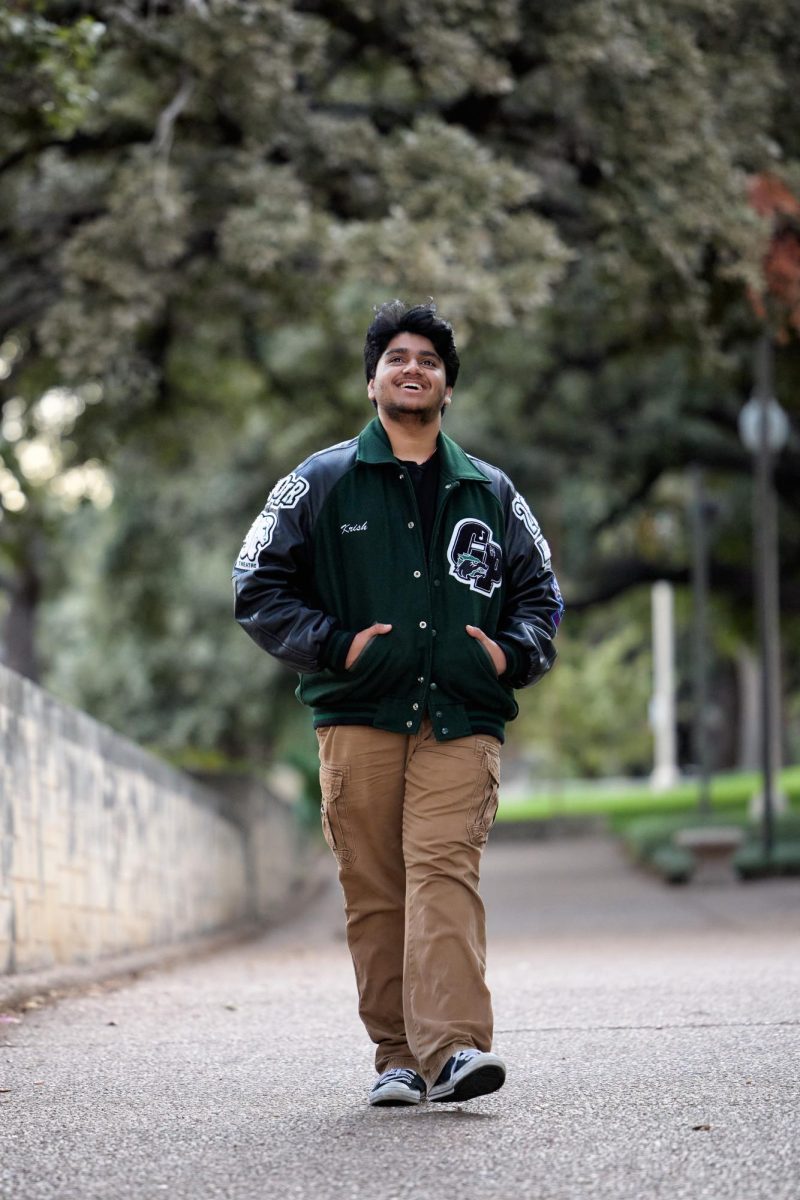

![Bringing her arm over her head and taking a quick breath, junior Lauren Lucas swims the final laps of the 500 freestyle at the regionals swimming competition on date. Lucas broke the school’s 18-year-old record for the 500 freestyle at regionals and again at state with a time of 4:58.63. “I’d had my eye on that 500 record since my freshman year, so I was really excited to see if I could get it at regionals or districts,” Lucas said. “ State is always a really fun experience and medaling for the first time was really great. It was a very very tight race, [so] I was a bit surprised [that I medaled]. [There were] a lot of fast girls at the meet in general, [and] it was like a dogfight back and forth, back and forth.” Photo by Kaydence Wilkinson](https://cphswolfpack.com/wp-content/uploads/2025/03/Kaydence-2.7-23-edit-2.jpg)
![As the support team sits and poses for a photo in the cafeteria with the counseling team they eagerly wait to start their day. "We [all] seem to be a team, I get up every day and there's days where I don't want to go to work today, but I'm thankful that I have a job and I'm blessed to have what I have," Christopherson said. Photo Courtesy of Julie Weltens.](https://cphswolfpack.com/wp-content/uploads/2025/01/AF9E8470-10D7-4C91-BF28-EC8F86BAB66C-1200x852.jpeg)
![Officer Stephanie Cash is in her second year as an SRO at CPHS. “Seeing [students] grow over the years has been kind of cool,” Officer Cash said. “Freshmen that [are] all over the place and then in the next couple of years get a little more squared away and go to class and do work and start thinking about the future. Being a part of a student's growth is the best way to measure my success as an SRO.” Photo Courtesy of Cedar Park Police Department's PIO, Alicia Gallagher.](https://cphswolfpack.com/wp-content/uploads/2024/12/CPHS-SRO-900x1200.jpg)
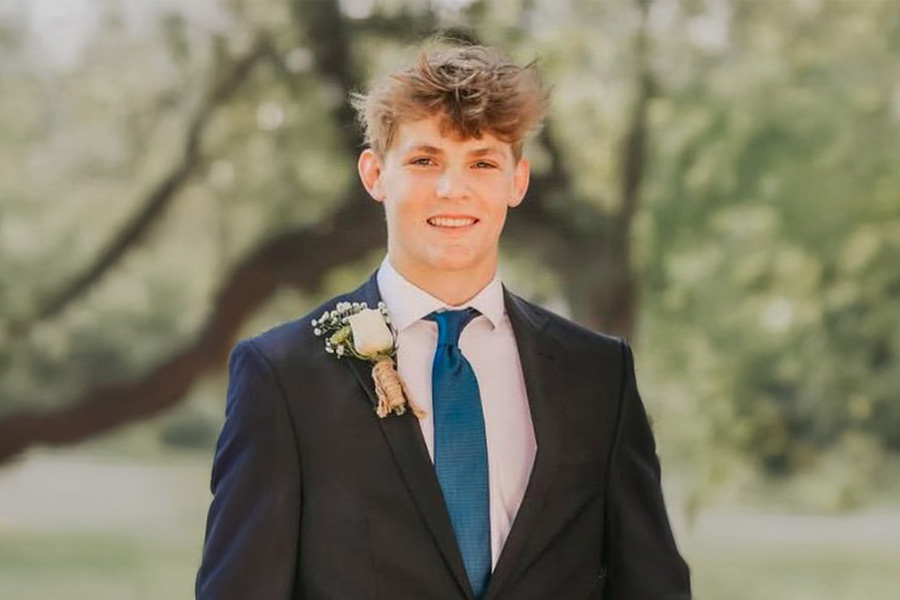

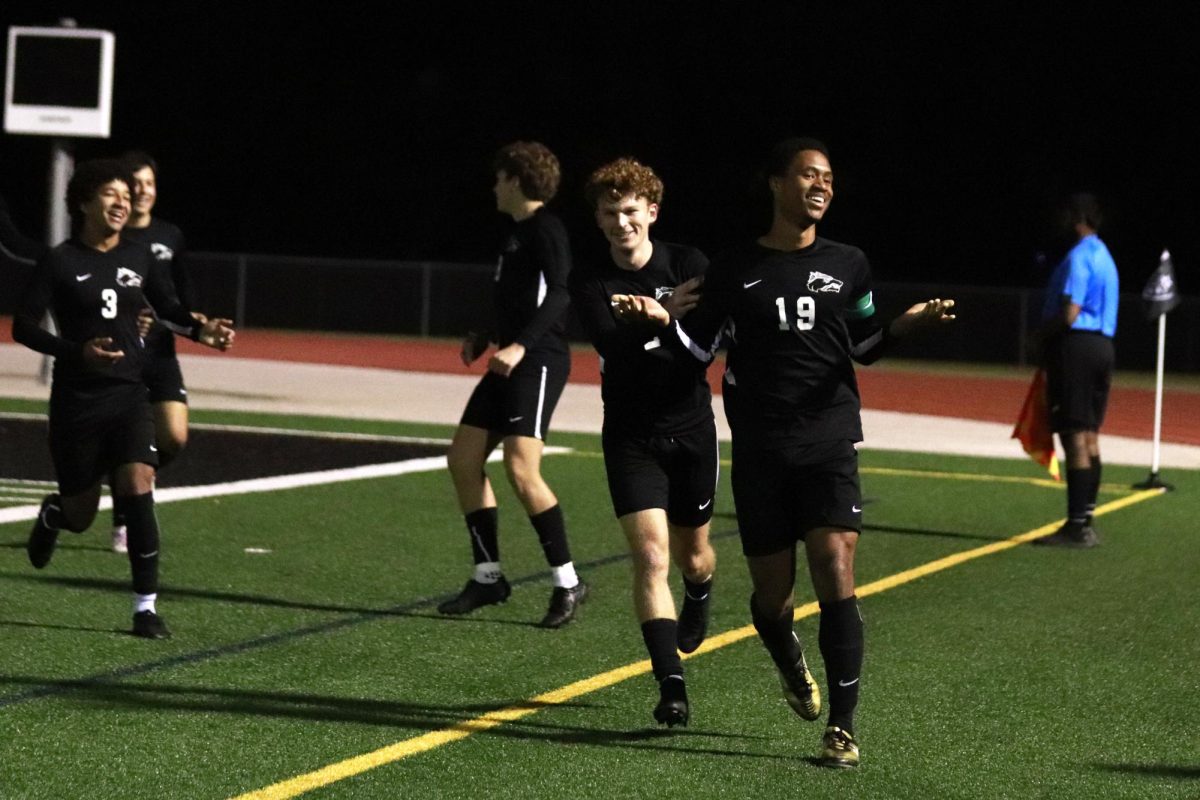
![Taking a breath as he raises his arm up and out of the water, sophomore Kaden Padilla swims the 500 freestyle at the UIL state meet on Feb. 21-22. Padilla placed 10th overall and second in the consolation final in the event, dropping two seconds. “My family was there, so being able to drop time for them was really special,” Padilla said. “It was awesome [finding out I advanced to the consolation finals]. I wasn’t expecting it, and I was very surprised. My parents being there definitely made me a lot happier knowing they got to see me swim in finals.” Photo by Skyler King.](https://cphswolfpack.com/wp-content/uploads/2025/03/kaden-padilla.jpg)

![Three defenders try to stop senior point guard Hope Edwards before the ball leaves her hands. The girls basketball team faced Liberty Hill on Feb 21, losing 58-40. “[My season was] definitely bittersweet,” Edwards said. It's definitely sad [because] I'm gonna miss all my teammates, my coaches and just the whole CP environment.”](https://cphswolfpack.com/wp-content/uploads/2025/03/julia-128-1200x800.jpg)













